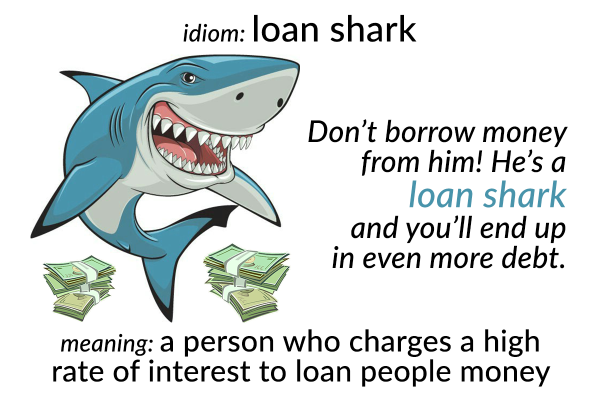Loan sharks are illegal money lenders who lend money without authorization and often use intimidation and threats to collect repayment. Borrowing from a loan shark can spiral into a dangerous trap of extortionate interest rates and never-ending debt. If you fail to pay back a loan shark, you could face serious repercussions.
Harassment and Threats
One of the most common tactics loan sharks use is harassment and threats to force borrowers to pay. This could include:
- Repeated phone calls to your personal mobile phone or landline.
- Showing up at your home and banging on your door demanding repayment.
- Contacting you at your workplace or outside your children’s school.
- Threatening phone calls and intimidating text messages.
- Using intimidation against your friends and family members.
- Threatening to reveal your debt and borrowing activities to your employer, family members or on social media.
Loan sharks want to create an environment of fear so you feel compelled to pay no matter what. Their threats could be verbal, physical, or reputational, putting pressure on you through all facets of your life.
Violence and Vandalism
In more extreme cases, loan sharks have been known to use outright violence and vandalism when borrowers don’t pay up. This can include:
- Physical assault, such as punching, kicking or other forms of battery.
- Vandalizing your home, car or other property by smashing windows, slashing tires, arson, graffiti, etc.
- Making threats against your family members, especially children.
- Kidnapping or physical restraint.
- In the most extreme cases, loan sharks have committed murder over unpaid debts.
While not all loan sharks take things to this level, violence remains a possibility if they believe threats aren’t working. Even implying they may resort to violence can create enough fear to intimidate borrowers into repaying debts.
Legal Action
While loan sharks have no legal right to collect debts, they may falsely claim that you owe them money legally and try to abuse the system to get it back. For example:
- They could take a county court judgement (CCJ) against you for the debt which would damage your credit score and ability to get future loans.
- Garnish your wages or bank account by getting a court order.
- Use bailiffs to seize possessions from your home to cover the value of the debt.
- Make claims that you committed fraud, breach of contract, theft, or other crimes related to the unpaid debt.
In reality, these have no legal merit since the contract with the loan shark was illegal in the first place. But intimidating legal tactics could pressure you into repayment.
Damaged Credit Score
If loan sharks can discover your identity, they may report your unpaid debt to the credit bureaus. This damages your credit score and makes it harder to get approved for legitimate loans, credit cards, and mortgages in the future due to that default showing on your credit history. A lower score suggests you are a high-risk borrower.
While you should not pay the loan shark, you may need to eventually repair your credit by disputing any fraudulent defaults and paying down other debts to improve your score over time.
What To Do if You Can’t Pay a Loan Shark
If you are struggling to repay a debt to a loan shark, help is available:
- Contact the Illegal Money Lending Team for support and to make an anonymous report.
- Seek free debt and legal advice from organizations like Citizens Advice.
- Notify the police if you experience threats, violence, or harassment.
- Avoid taking out any new loans and worsening your situation.
- Work on rebuilding your credit if it has been damaged.
Dealing with loan sharks can be scary, but you have rights on your side. Don’t let illegal lenders intimidate you—there are people who can help you get your finances back on track safely.
FAQ
What do loan sharks do if you don’t pay?
If you don’t repay the loan, loan sharks may use coercion and force, which licensed lenders would never do. This might occur in person or online, for instance, through threatening messages.
Can loan sharks go to jail?
Sometimes, loan sharks scare off borrowers by threatening legal action and even prison time if they don’t make payments. This is impossible because it is not a crime to default on a loan obtained from an unlicensed lender.
How do you get out of a loan shark?
Paying off the remaining balance and staying away from loan sharks is the simplest way to break your relationship with them. You might not even be aware that you are being held captive by a loan shark because some lenders appear to be completely legitimate.

